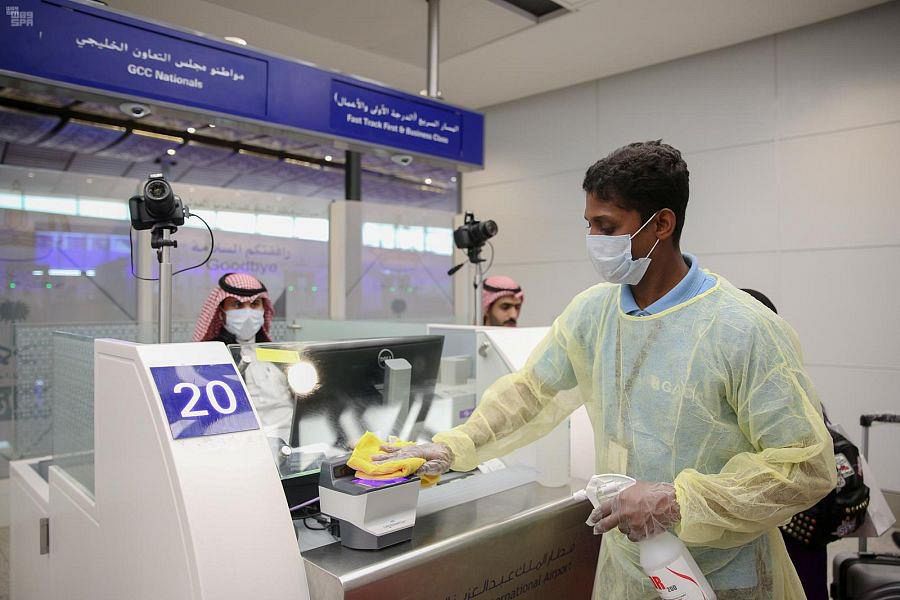
All that the civilized world needs today is a little enticement through stirring up conflicts, reviving historical vendettas and twisting religious texts, to become a society of hyenas.
Facebook declared that it had deleted more than 1.5 million messages and videos related to Friday’s shootings at two mosques in New Zealand, while merchants of politics rushed in to exploit the opportunity. They include an Australian senator who had an egg smashed on his head by a young man as an indictment of his agitation and justification of the crime, and Turkey’s President Recep Tayyip Erdogan, who is campaigning ahead of local elections.
The latter, trying to milk the opportunity, screened at a rally the video of the crime, which was banned by Facebook, in an attempt to win the votes of angry people. Let us not forget that Erdogan abandoned the people of Syria’s Idlib province and allowed the Iranians and the Russians to slaughter thousands within sight of his army.
The 28-year-old terrorist who murdered 50 unarmed worshippers in New Zealand is a by-product of the networks of the new society that was born in the bosom of social media. A great dam of moral values, ethics and laws was broken down by a raging torrent of hatred on social media as responsibility was scattered between the author, transmitter, receiver, and legal and political authorities.
Should we blame those who taught the murderer lessons of hatred from history books and pages from holy books, rap lyrics that promote violence, pictures of cadavers, or messages of encouragement on WhatsApp groups? Or should we blame idols who had already been killed while committing terrorist and racist crimes?
Do we hold responsible platforms such as Facebook, which have become an alternative tutor to schools and families? Or those who use such platforms to transmit hateful messages from religious, racist, fascist and extremist groups? Or the individual who carries a gun and heads to the nearest mosque, church or school, or drives a vehicle and runs over pedestrians and kills as many of them as he can?
Terrorism and hatred have always been present, so what is the difference between the terrorists of the past and those of today? In the past, a terrorist organization had an address, name and hierarchy that could be breached to get to its highest echelons and destroy it.
The mosque attacks in New Zealand are another dangerous sign of how extremism, violence and hatred have expanded beyond traditional conflict zones in the Middle East and Europe to faraway lands.
Abdulrahman Al-Rashed
But today, potential terrorists live amid wider society, in chaos, without names or addresses, supported by a wide network and nurtured by ideas, motives and applauders. The network leads them to sources of weapons and ways to use them, and lists their names among those awaiting glory.
There is no way to stop mass murderers while preparing their crimes except by shutting down Facebook, Twitter, Instagram and other platforms, which is as impossible as cutting off electricity in any city.
Given this difficult challenge, all that civilized societies can do is clean crime scenes of spilled blood, issue statements of condemnation, and banish videos considered heroic by racists and terrorists. However, deleting millions of videos and a few accounts belonging to instigators will not stop hatred from spreading.
The world, which has succeeded in destroying evil empires such as Nazi Germany, fascist Italy and other racist regimes, now stands impotent against interactive empires of extremism on social media.
The mosque attacks in New Zealand are another dangerous sign of how extremism, violence and hatred have expanded beyond traditional conflict zones in the Middle East and Europe to faraway lands. They are a sign that many similar incidents will occur unless the world decides to act jointly and cure the disease by destroying the swamps of hatred where terrorism breeds.
What Dr. Mohammed Al-Issa, secretary-general of the Muslim World League, said in his message to New Zealand and the whole world, reflects the mindset of many: It is necessary to incriminate hatred by passing unanimously agreed international laws that allow the waging of war against it.
The world has to be aware that there is much to lose unless the profits of companies that benefit from freedom of speech and photography, while destabilizing international coexistence, are sacrificed.
The rhetoric of hatred is no longer a matter that one nation or religion — such as the Arab world or Islam — is accused of. It is expanding in Christian, Jewish, Hindu and Buddhist societies, and directed against blacks, immigrants, gypsies, and a growing list of others.
• Abdulrahman Al-Rashed is a veteran columnist. He is the former general manager of Al Arabiya news channel, and former editor in chief of Asharq Al-Awsat.
Twitter: @aalrashed
Disclaimer: Views expressed by writers in this section are their own and do not necessarily reflect Arab News" point-of-view












